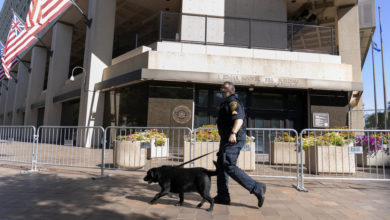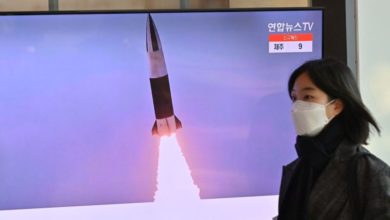Climate Impacts Hit Electric Car Factories Around the World

Utomakers who are trying to create more electric vehicles face a problem. The industry is also catching up with climate change.
On Monday, authorities in China’s Sichuan province—the source of about a fifth of the country’s lithium production—extended electricity cuts to some industrial users as the most intense heat wave in more than 60 years depletes reservoirs used for hydropower.
Volkswagen stated last week that its regional factory was being affected by power cuts and it expects a delay in deliveries. Toyota and CATL, the battery manufacturer, have closed their factories temporarily. Tesla and China’s SAIC Motor told authorities in Shanghai—roughly 2,000 kilometers (1,240 miles) to the east of Sichuan’s capital city of Chengdu—that they may have difficulty maintaining production if the power crunch continues to impact suppliers.
In Europe, a drought has threatened to make the Rhine river—a crucial waterway for German, Dutch and Swiss trade for centuries—impassable at a key waypoint. While rainfall over the weekend alleviated risk of disruption to diesel and coal shipments to power stations and industrial plants, Shell already cut production at Germany’s biggest oil-processing complex due to the issue. Authorities had to call the military in order to fight several forest fires in Brandenburg and Saxony where Tesla and BMW have their car factories.
Continue reading: Elon Musk Wants Lithium For Electric Vehicles, But It’s Hard to Get
Climate change is a major concern for car manufacturers. Tesla, for instance, warns that if climate-related disasters occur, its headquarters and production facilities “may be seriously damaged, or we may have to stop or delay production and shipment of our products.”
While manufacturers clearly realize climate change may hit their production networks, their actions don’t always line up with the severity of the threats. In regions with decreasing supply, companies continue to build water-intensive manufacturing plants.
Tesla was confronted in Germany by opposition when it built its factory in an area that is prone to drought and falling groundwater. Tesla produces electric cars in Fremont, California. It receives 16 inches of rainfall per year. That’s less than the average US annual. The battery plant Tesla runs with Panasonic in Reno, Nevada, and Lucid Motors’ factory south of Phoenix are located in even drier regions.
Lucid, which is part-owned by Saudi Arabia’s sovereign wealth fund, plans to build an EV factory in the kingdom near the city of Jeddah, where temperatures can top 120 degrees Fahrenheit (49 degrees Celsius) in the summer.
Several carmakers including Tesla are equipping factories with renewable-energy generators and say they’re working to make their sites more resource-efficient, including by reducing water consumption. At its plant in Chennai, India, BMW collects rainwater in basins during the monsoon season, covering 60% to 90% of the plant’s annual water requirement. A spokesperson for BMW said that more rainwater reservoirs are being built to increase their share.
While the surge in demand for EVs is poised to reduce carbon emissions from transport, it’s sparked a mining boom for battery metals, including lithium. The silvery-white metallic comes mostly from Australian open-pit mines. For processing in Asia, raw materials will be shipped. A lot of carbon dioxide has already been released into the atmosphere by the time lithium reaches American or European EVs. Although there are some efforts to extract lithium from the ground without releasing greenhouse gases, these are in their early stages.
Volkswagen is opening a German facility to recycle 90% of the battery components. The company was an early supporter of QuantumScape (a US-listed firm that works on solid-state battery technology), which is a possible alternative to the widely-used lithium-ion technology. The automaker is expected to sign an agreement with Canada to secure access to raw materials including nickel, cobalt and lithium for vehicle and battery production as part of Chancellor Olaf Scholz’s visit to the country this week.
VW said the Rhine’s low water levels haven’t impacted its production, and that its crisis management team has proven itself during extreme weather events and challenges including the Suez canal blockage and the war in Ukraine. To detect signs of disruptions and collaborate with part makers, the company also established a supplier management program.
Unambiguously, one thing is certain: New challenges in the supply chain of its company can only be overcome together.
Here are more must-read stories from TIME




